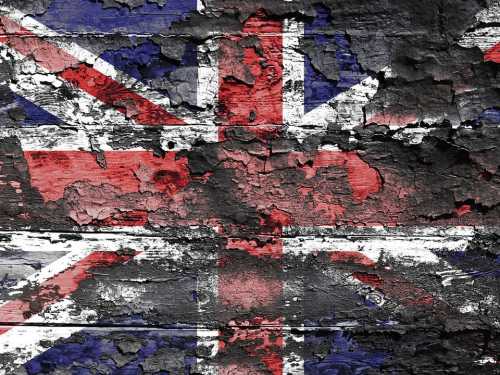
Back in the early 20th century, the British Empire was “the sun that never set.” It covered a quarter of the world's landmass, had hundreds of millions of people as its subjects, and the British flag flew from Canada to Australia, from India to the Caribbean. However, today the former metropolis, while remaining a significant world power, no longer has the status of a superpower and is facing growing internal problems. Why did this happen?
The peak of imperial greatness
By the early 1900s, Britain had the world's largest colonial network, the most powerful navy, advanced technology, and immense political clout. It controlled the most important trade routes and resources. The empire became the backbone of the global economy and the “world policeman” for trade, navigation, and finance.
The colonies provided the metropolis with raw materials, human resources and markets. At the same time, this prosperity was built on harsh exploitation, the suppression of rebellions, and the economic policies of the empire often led to humanitarian disasters, such as the famine in Bengal. London was the financial center of the world, and the English language, legal system and British traditions penetrated even to the most remote corners of the planet.
World War I
The Great War (1914-1918) was the first serious blow to the empire. Britain suffered enormous human losses – about a million soldiers from the metropolis and colonies died, was involved in a costly military conflict, and its economic resources were depleted. The participation of the colonies in the war was a powerful catalyst for national liberation movements. Demands for recognition and autonomy, supported by ideas about the self-determination of nations, resounded with new force.
In addition, after the war, a serious geopolitical rival appeared – the United States, and Britain's influence began to gradually decline.
World War II
The Second World War finally undermined British hegemony. Despite the victory, the country found itself economically dependent on the United States. It had to borrow to maintain its defense and social sectors. The navy became obsolete, the economy weakened, and the colonies increasingly demanded independence.
A symbolic moment was the loss of India in 1947. The British “crown jewel” became independent, followed by Pakistan, Ceylon, Burma, Malaya. The colonial system began to crumble like a house of cards.
Suez Crisis of 1956
The Suez Crisis of 1956 was a fatal blow to imperial ambitions. When Egypt nationalized the Suez Canal, Britain, along with France and Israel, tried to take it back by force. However, under pressure from the United States and the Soviet Union, it was forced to retreat in humiliation. This event clearly demonstrated to the whole world that Great Britain had lost its status as an independent superpower and that its foreign policy was now dependent on the will of Washington.
Decolonization
From the 1950s to the 1980s, a large-scale process of decolonization took place. Great Britain ceded its territories one by one: Africa, the Caribbean, Southeast Asia. Some colonies became independent states, others embarked on the path of cooperation within the framework of the British Commonwealth.
One of the last significant territories was Hong Kong, returned to China in 1997.
Brexit and the post-imperial syndrome
Modern Britain is a country with a developed economy, a high standard of living and global cultural influence, but it is no longer an empire. Brexit, often seen as an expression of post-imperial syndrome and an attempt to regain “control”, instead of the expected rebirth of greatness, has become one of the factors that caused a long period of political and economic instability, deepened by other global crises.
Nostalgia for empire still exists in British society, but the world has changed. China and the United States have become new centers of power, and some former colonies, including India, have become powerful global players.
What's left of the empire?
Despite the loss of its colonies, Britain left a powerful mark:
- English is a global language;
- London remains one of the world's financial centers;
- British law is used in many countries;
- The British monarchy and culture remain recognizable symbols.
The British Empire did not collapse suddenly—its decline was gradual, driven by wars, economic losses, and a changing global balance of power. Today, Great Britain is not an empire, but an influential power with a unique legacy, whose role in the world has transformed but not disappeared.
However, the story of its fall is a reminder that no power is eternal, even one on which the sun never set.





